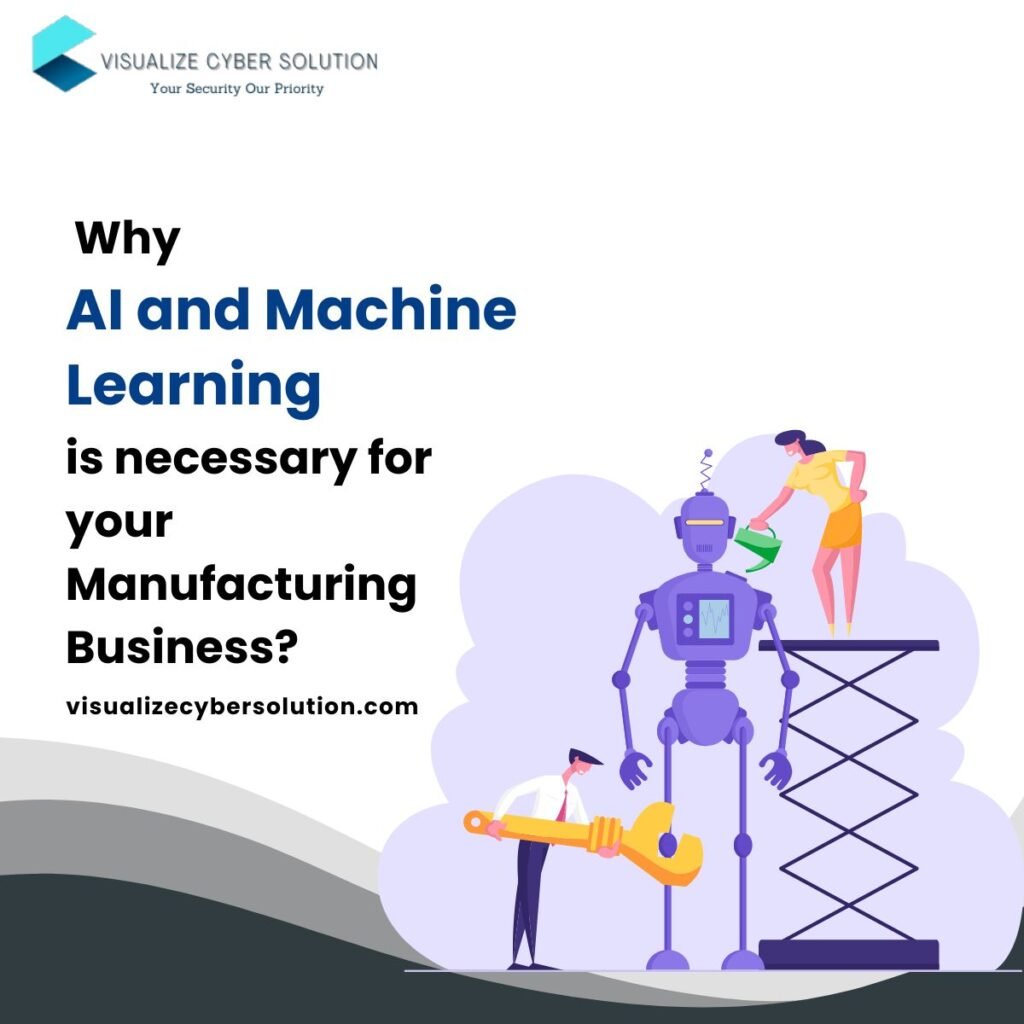
Transforming Manufacturing: The Crucial Role of AI and Machine Learning by Visualize Cyber Solutions
In the age of Industry 4.0, where innovation and efficiency define success, the integration of Artificial Intelligence (AI) and Machine Learning (ML) has become a game-changer for the manufacturing sector. These technologies are revolutionizing how manufacturing businesses operate, optimize processes, and deliver high-quality products. In this blog, we’ll explore why AI and Machine Learning are indispensable for manufacturing businesses and how they’re reshaping the industry.
Powering Manufacturing Excellence through AI and Machine Learning
The manufacturing industry faces challenges such as complex operations, data overload, and the need for real-time decision-making. AI and Machine Learning offer advanced solutions that can analyze data, predict outcomes, and enhance overall operational efficiency.
1. Predictive Maintenance
AI-driven predictive maintenance uses data from sensors and machinery to forecast potential equipment failures. By predicting maintenance needs, manufacturers can reduce downtime, optimize maintenance schedules, and extend the lifespan of equipment.
2. Quality Enhancement
AI and Machine Learning can analyze production data to identify patterns related to product defects. This enables manufacturers to spot potential issues in real-time, ensuring higher product quality and reducing the number of defective items.
3. Process Optimization
Machine Learning algorithms can analyze vast amounts of operational data to identify inefficiencies in production processes. By optimizing workflows, manufacturers can enhance resource utilization, reduce waste, and improve overall productivity.
4. Demand Fo
recasting
AI can analyze historical sales data, market trends, and external factors to accurately forecast product demand. This empowers manufacturers to align production with market needs, reducing excess inventory and minimizing shortages.
5. Personalized Manufacturing
AI-driven customization allows manufacturers to efficiently create personalized products. Machine Learning algorithms adjust production parameters based on individual customer preferences, leading to increased customer satisfaction.
6. Supply Chain Optimization
AI-driven analytics can optimize supply chain operations by analyzing data from various sources. This enables manufacturers to manage inventory levels, monitor supplier performance, and improve supply chain efficiency.
7. Smart Manufacturing
AI and Machine Learning enable the creation of smart manufacturing systems that can adapt to changing conditions in real-time. These systems optimize production based on variables like energy costs, demand fluctuations, and machine availability.
In conclusion, AI and Machine Learning are revolutionizing the manufacturing industry by providing advanced tools for predictive maintenance, quality enhancement, process optimization, and more. By embracing these technologies, manufacturing businesses can achieve greater efficiency, improve product quality, and drive innovation in a rapidly evolving landscape. As Industry 4.0 continues to shape the future of manufacturing, AI and Machine Learning remain pivotal in ensuring competitiveness and success.
#Industry40 #ManufacturingTech #AIinManufacturing #MachineLearning #SmartManufacturing #DataDrivenDecisions #OperationalEfficiency #InnovationInManufacturing #VisualizeCyberSolutions #LifeatVCS


